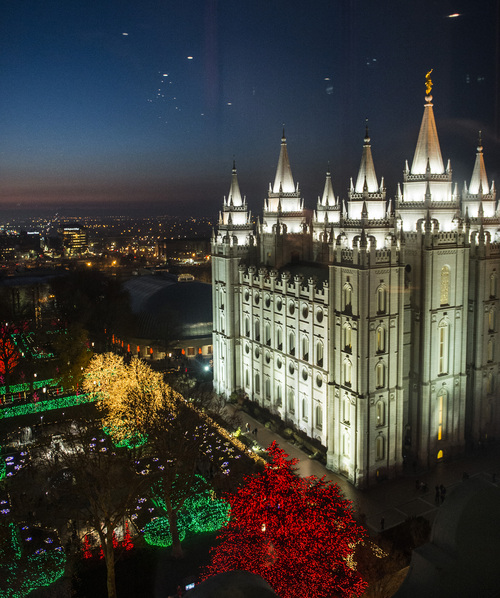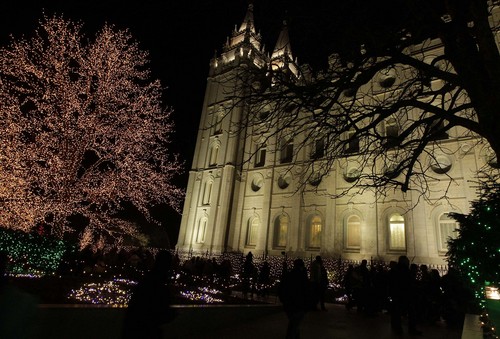This is an archived article that was published on sltrib.com in 2014, and information in the article may be outdated. It is provided only for personal research purposes and may not be reprinted.
LDS Church discipline was outlined in a 1990 talk given by apostle M. Russell Ballard, and some other information the church has posted on its website.
Here are the highlights:
• When an LDS bishop learns of a serious transgression, usually by a confession, he first counsels with the member. If the sin is not grievous, he may decide that no disciplinary action is needed — but continues to counsel the member.
• The bishop can also place the member on informal probation, temporarily restricting privileges such as taking the sacrament (communion), holding church positions or entering Mormon temples. He may also give instruction to make specific, positive changes in attitude or behavior.
• In serious cases, church disciplinary councils may be held. The faith's governing First Presidency has instructed that they must be held in cases of murder, incest or apostasy, or when a prominent church leader commits a serious sin.
• The bishop and his two counselors — who oversee local congregations — have authority to hold disciplinary councils for all ward members. However, if excommunication of a male holder of the faith's higher Melchizedek Priesthood is thought to be a possibility, the three-member stake presidency and a 12-member high council may convene a stake disciplinary council. Stake leaders oversee a number of LDS congregations. All local Mormon clergymen are lay leaders.
• At councils, an opening prayer is held, and the member is asked to discuss the concern, including what steps he or she has taken toward repentance. The member may bring witnesses. Afterward, the member is excused. The leaders then confer, pray and reach a decision. It may or may not be reached and announced quickly.
• The LDS Church says the purposes of disciplinary councils are to save the souls of transgressors, protect the innocent, and safeguard the purity, integrity, and good name of the church. In stake councils, lots are cast and six of the 12 high councilors are instructed to ensure that the member's rights are protected and six are assigned to safeguard the church's good name.
• Councils are instructed to be conducted in a spirit of love and to keep everything discussed confidential.
• Councils can reach four possible decisions:
1. No action.
2. Formal probation (a temporary state of close supervision).
3. Disfellowshipment (the member may not hold a church position, enter temples, take the sacrament or exercise the priesthood, with other instructions possible)
4. Excommunication, or loss of membership.
• Members are soon given a letter outlining the decision along with any instructions.
• Members are told they may appeal the decision. The appeal of a ward disciplinary council goes to the stake presidency and high council. Any further appeals go to the First Presidency.
• Councils are seen as the beginning of a process, rather than an end. When leaders feel the member has progressed sufficiently, the bishop or stake president has authority to call a new disciplinary council to consider restoring full fellowship.
That may include rebaptism for someone who was excommunicated.





